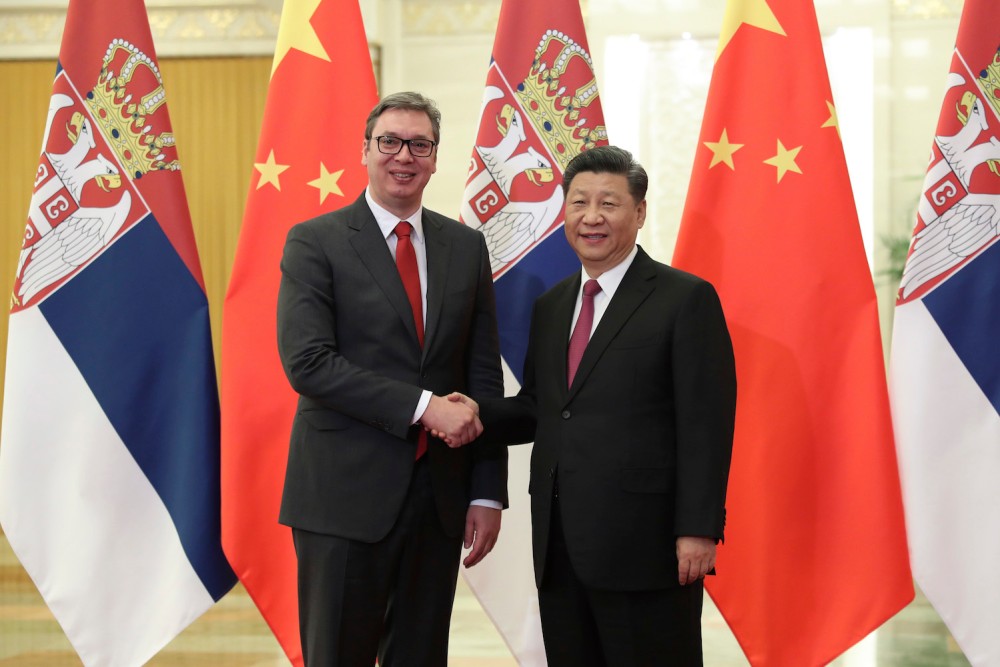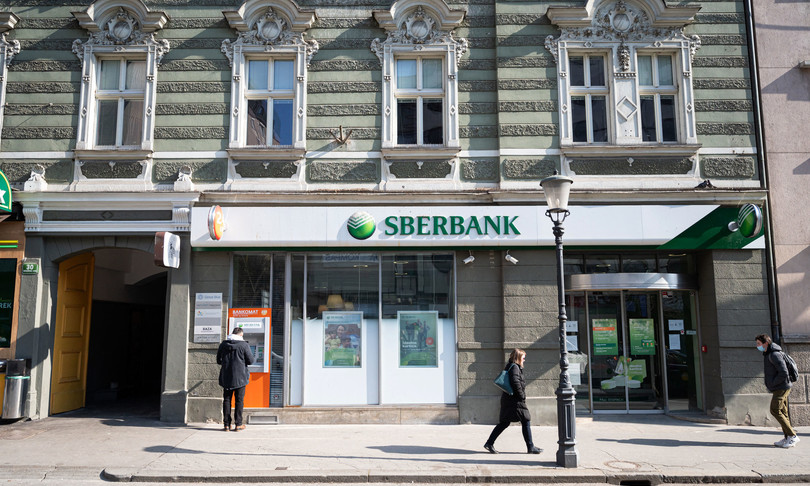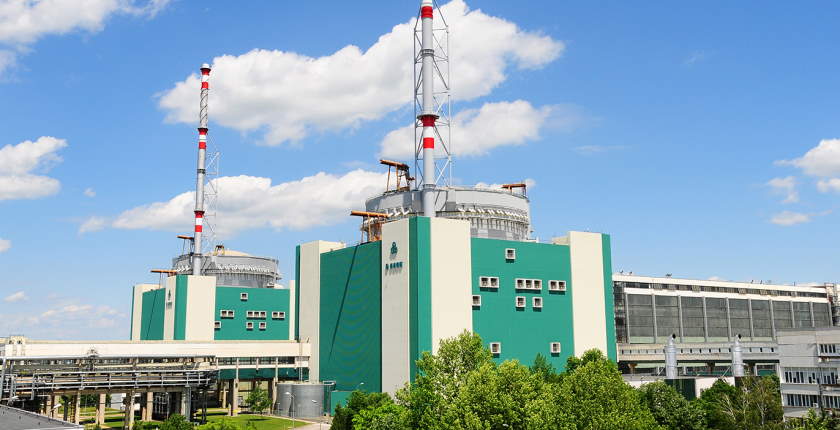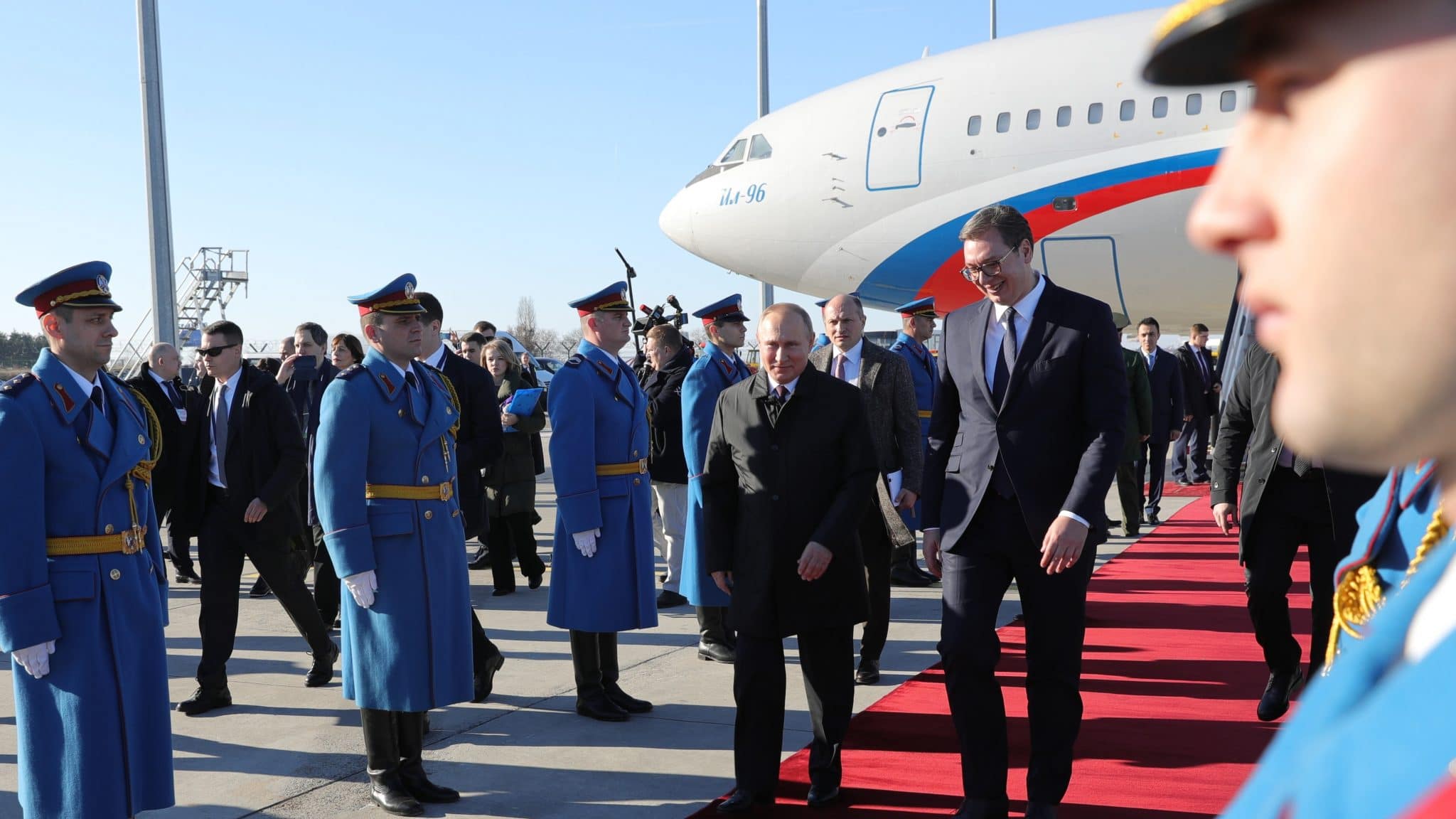Press Reviews
February 2022
International Media Digest
EU STILL FAILS TO IMPOSE SANCTIONS ON DODIK, RISKS TO STABILITY PERSIST
Although influential EU member countries such as Germany were reportedly pushing for it, European Union leaders disagreed on imposing sanctions on Bosnian Serb leader Milorad Dodik and his associates in February.
Many see Dodik as the leading ‘architect’ of the worst political crisis Bosnia and Herzegovina (BiH) has faced since the end of the war in 1995. The crisis erupted last year, with Dodik and the Bosnian Serb leadership threatening to create an autonomous Bosnian Serb tax administration and regional Judicial and Prosecutorial Council (HJCP) and even evoked the possibility of exiting the Armed Forces of Bosnia and Herzegovina. In February, the RS Parliament accelerated the establishment of a separate judiciary by voting a draft law that paves the way for the creation of the Bosnian Serb HJCP. To respond to the destabilizing actions of the Bosnian Serb leadership, the US imposed new sanctions against Dodik in January.
The European Union also threatened more times to impose similar sanctions if the political paralysis continues and the overall situation degenerates. “Should the situation further deteriorate, the EU disposes of a wide toolbox, including the existing EU sanctions framework, and a review of the overall EU assistance,” Brussels warned. In February, several EU countries, with Germany at the helm, tried to accelerate the possible implementation of European sanctions, including restrictive and economic measures, travel bans and asset freezes, as a last resort. Meanwhile, the European Parliament voted to impose sanctions against Dodik by approving an amendment drafted by several MEPs. In the amendment, the Bosnian Serb leadership was criticized for its “unconstitutional secessionist moves” that undermine “the state structures” and pose “an existential threat [to BiH’s] unity and territorial integrity”, at the same time pointing to “the detrimental role played by Russian foreign interference”.
To signalize the seriousness of the situation, the EU Foreign Affairs Council in February had only “two hot spots: Russia-Ukraine on one side, and Bosnia and Herzegovina on the other,” EU High Representative Josep Borrell said before the summit of the EU Foreign Ministers. “Do not dismiss the importance of what is happening in Bosnia and Herzegovina because the nationalist and separatist rhetoric is increasing in Bosnia and Herzegovina and jeopardizing the stability and even the integrity of the country,” Borrell noted, anticipating that “the [EU Foreign Affairs] Ministers will have to take a decision on how to stop these dynamics to avoid that the country can fall apart in pieces.”
However, the Council took no concrete decision related to possible sanctions, allegedly because of the opposition of certain EU member countries close to Dodik, above all Hungary. Nonetheless, sanctions are still on the table, Borrell hinted. Moreover, the EU decided to boost the Bosnia peacekeeping force EUFOR by sending 500 troops more in the wake of the Russian aggression against Ukraine. Besides that, the EU froze up to 600 million euros which were dedicated to strengthening the rail and road connections in Republika Srpska.
It remains unclear whether the measures will be enough to stop Dodik’s quasi-secessionist plan. Dodik, in light of the war in Ukraine and the isolation of Russia, one of its closest allies at the international level, could find himself deprived of its strongest supporter. However, it seems that Moscow could have some interest in keeping Republika Srpska close to Russia even during the conflict in Ukraine. Dodik, openly pro-Russian, spoke to Russian Foreign Minister Sergey Lavrov on February 28. The talks were related to the “implementation” of some unspecified “agreements reached during the meeting of President of Russian Federation Vladimir Putin and Milorad Dodik in Moscow in December 2021,” the Russian Embassy in Sarajevo said.
Bosnia also remains fragile for other reasons. The country could be further destabilized by a failed electoral reform, which could even lead to a postponement of the 2022 elections and a broader and more dangerous crisis.
KOSOVO CONFIRMS SERBS WILL BE NOT ALLOWED TO VOTE IN APRIL, NEW CRISIS LOOMING
A new instability front may arise in the Balkans before the 3rd of April Serbian general elections. The fuse could be the announcements of the Kosovo authorities, who appear to be headed towards preventing Serbs living in Kosovo from voting at the Serbian elections.
“Serbia wants to hold its elections within the territory of Kosovo, not because it wants to uphold the rights of citizens to vote, but because it has territorial claims in Kosovo,” Kosovo’s Justice Minister Albulena Haxhiu said. Haxhiu added that Serbs living in Kosovo could vote in the Serbian elections through mail ballots or by voting at the so-called Serbian liaison office in Pristina.
The announcement comes after the Kosovo authorities banned Kosovo Serbs to vote in the Serbian constitutional referendum back in January, stating that Pristina does not “recognize the right of one state to hold a referendum in the sovereign territory of another state.” Kosovo added that “the practices applied so far since 2012 have been unconstitutional,” referring to the pattern of letting Serbs from Kosovo participate in Serbian elections and of local Serbian administrators in the former Serbian province organizing the voting in Serb inhabited areas.
Germany, France, Italy, the UK, the US and the EU called unsuccessfully on the Kosovo government “to allow Serbs in Kosovo to exercise their right to vote in elections and electoral processes in accordance with this established practice.” Belgrade vehemently protested against the decision of Kosovo and warned that Kosovo Prime Minister Albin Kurti “should not think that in the future they will succeed in banning Serbs in Kosovo from voting, notably in April 3 elections,” the director of the Serbian Government Office for Kosovo Petar Petkovic warned.
However, Pristina seems to have chosen the hardline. “The voting will be in line with the constitution; we feel that following the Kosovo Constitution and laws is exceptionally important,” Minister Haxhiu confirmed. Adverse effects of the new tensions are already evident. The negotiations team from Serbia and Kosovo did not meet in person in February at a gathering planned to resume the EU-facilitated dialogue.
Meanwhile, President Aleksandar Vucic cautioned that Belgrade would not stay aside if Serbs from Kosovo were not allowed to vote, alluding at the far-reaching consequences of such action of Kosovo authorities, without specifying them further.
Further News and Views

Serbia and China to sign a free trade agreement
In a move that will reinforce the already strong ties with Beijing, Serbia and China will sign a free trade agreement by the end of 2022, Serbian President Aleksandar Vucic announced. Belgrade said that bilateral trade is expected to expand from the current 4,6 billion euro a year to almost 10 billion. The EU said Serbia should withdraw from all bilateral free trade agreements when it joins the EU.
SeeNews, N1

Sberbank’s potential collapse impacts the Balkans
The European subsidiary of the Russian state-owned Sberbank is likely to fail, the European Central Bank (ECB) said. International sanctions against Moscow also hit Sberbank, which led to a “deterioration of their liquidity situation,” the ECB said. A kind of bank-run was observed in Croatia, where concerned account holders queued in front of Sberbank branches in the EU member country to withdraw funds. The same happened in Bosnia at the end of February.
ECB, Reuters, ANSA

Bulgaria planning to abandon Russian-driven nuclear project
To reduce the dependence from Russia in the energy sector, the Bulgarian government is looking for a way to cancel the project of a second nuclear power plant near Belene, to be implemented with two Russian nuclear reactors. In the meantime, Bulgaria has begun talks with Greece on building a new nuclear power plant in Bulgaria to be used by Greece under a long-term 20-year contract. Sofia did not specify where the facility could be located and which technology will be used in the NPP.
Euractiv
Monthly Analysis
RUSSIAN AGGRESSION ISOLATES SERBIA,
DIVIDES BOSNIA, UNITES THE REST OF
THE BALKANS

The war in Ukraine has a significant spill over effect in the Balkans, exacerbating existing divisions, emphasizing different geopolitical positions of the countries in the region and reigniting long-standing tensions between pro-Russian and pro-Western factions in the area.
Serbia, a candidate country for EU membership that maintains strong ties with Russia, is in the most uncomfortable position. Belgrade has tried for years to balance its relations with both Russia and the EU. Still, the Russian aggression in Ukraine has isolated Belgrade in Europe, casting doubts on the capacity of the country to join the EU one day. While all European countries have immediately condemned the Russian aggression, Belgrade has kept silent for days. The reluctance of Belgrade emphasized the difficulties experienced by the political leadership in Serbia in openly criticizing Russia, which has been assisting Serbia in modernizing its army and covering the majority of Serbian needs for gas.
On the 25th of February, however, Serbian President Aleksandar Vucic announced the official Serbian position about the Russian aggression, stating that the military actions of Moscow are “very wrong” and that Serbia respects Ukraine’s territorial integrity and sovereignty. Yet, Vucic said that Belgrade is refusing to impose sanctions against Russia. “Serbia will be guided solely by its interests in considering sanctions against any state including Russia”, and Belgrade “feels that it is not in its interest to impose sanctions on any state,” Vucic said. “Serbia respects the norms of the international law but also understands its interests,” Vucic underlined, an apparent reference to the Russian support to military neutrality of Serbia, and to the Serbian position in relation to Kosovo.
Bosnia and Herzegovina, still profoundly divided along ethnic lines, was also shaken by the Russian aggression as evident in the lack of unequivocal disapproval of Moscow’s actions. While the Bosnian Croat and the Bosniak members of the tripartite presidency, Zeljko Komsic and Sefik Dzaferovic, condemned the Russian invasion, the Bosnian Serb member of the presidency, Milorad Dodik, expressed just concern about the situation. As the three presidency members have opposite views on the situation, there was no discussion on sanctions in Sarajevo, despite EU pressures to follow the Union’s policy against Moscow.
The rest of the region, on the opposite, unified in a strong condemnation of the Russian aggression and in following the Western stance against Moscow, with practically no exception. NATO countries that are still not part of the EU, such as Albania and North Macedonia, also joined EU and Western sanctions and closed their airspace to Russian planes. Although shaken by a severe political crisis, even Montenegro announced it would follow the steps of Brussels and Washington.
Kosovo, which also decided to impose sanctions against Serbian-ally Russia, went even further, paving the way for new tensions with Belgrade. Pristina asked the US to establish a permanent military base in the country and to NATO to accelerate Kosovo’s memberships procedures. It also reiterated its call to all countries in the world to fully recognize it, causing new turbulences with Belgrade.
The Insight Angle

KURT BASSUENER
Co-founder and Senior Associate,
Democratization Policy Council (Berlin); and a Fulbright Fellow.
Do you think the war in Ukraine could have direct or indirect consequences in the Balkans?
It has already. People of the Balkans feel the war’s effect upon them. And there are legitimate fears that Russia might want to activate its partners in the region – especially Milorad Dodik in BiH’s Republika Srpska and Serbian President Aleksandar Vucic. Dodik is Moscow’s most valuable player in the Balkans; Vucic has practiced a lucrative geopolitical arbitrage among the EU, US, Russia, China, Turkey and the Gulf States. And Croatia’s ties with Moscow – and Russia’s support for Bosnian Croat nationalist agendas in BiH – remain underappreciated.
The de facto deterrence failure in BiH, running since the major EUFOR drawdown in early 2007, has fuelled retrograde, reactionary, and destabilizing agendas region wide ever since. Russia – as well as China and others – have stepped into this void. So, Russia’s neo-colonial invasion of Ukraine has whetted the appetite of those in the region with similar (and Moscow-backed) agendas – and the fears of those who may be on their menu. Serbia has been unable to condemn the Russian invasion and align with the EU position, which has undergone (with NATO and the rest of the democratic world) a quite rapid evolution in the last 96 hours. Popular support for Ukraine – and the visceral resonance of the country’s struggle against a much larger and better armed adversary – has been massive in BiH and elsewhere in the region, but not in Serbia or RS.
Do you think the latest actions of Moscow could undermine the Russian position and influence in parts of the region?
Yes. Bosnia is one of the countries in which there is a direct and immediate response to neutralize Russia’s destabilization potential. Russia’s incentive to foment destabilization when facing stiff resistance in Ukraine is high. Russian senior security official Nikolai Partushev’s visit to Belgrade was announced as the invasion commenced by the Serbian government itself; Vucic later announced it was cancelled. Vucic’s “sitting on two chairs” – that is, seeking to maximize his freedom of manoeuvre by juggling geopolitical suitors, extracting resources, legitimacy, and indulgence for increasingly autocratic and irredentist behaviour in the region – seems like it may no longer be sustainable.
Russia’s main value added was its support for Belgrade’s position on Kosovo. With Russia now an international pariah state, Western courting of Serbia – via the “Open Balkan” initiative, in the hoping of arriving at a deal with Kosovo, and simply in search of regional pacification – may well dissipate. The fact that an EU candidate country is the only European state, aside from co-belligerent Belarus, that has refused to condemn Russian aggression against Ukraine has raised many question on whether the political and economic investment in Serbia has been worthwhile. And the answer ought to be a decided no. Vucic’s media dominance and promotion of pro-Russian (and pro-Chinese) narratives has shaped much of Serbian public opinion, limiting his room to manoeuvre. Geopolitical arbitrage can be profitable, until it isn’t… That business model may be broken now.
Bosnia is still facing one of the worst political crises of the last decade. Do you forecast a further escalation of the crisis?
The destabilization potential in BiH is massive. Thus far, sanctions against Dodik have been eschewed by member states in favour of efforts to seek elite accommodation via electoral and constitutional reform among BiH’s ethnocrats – effectively making the EU and US brokers in optimizing oligarchy and for-profit politics in BiH. A massive majority – 504 MEPs – in the European Parliament supported a radical recalibration of EU (and wider Western) policy toward BiH, including sanctions against Milorad Dodik and his circle for threats to the Dayton peace agreement. But the calculus may markedly shift as a result of Dodik’s support for Russia’s war of aggression and the democratic unity and the resolve it has catalysed. Even Dodik, Vucic, and Putin’s partner, Hungarian PM Viktor Orban, bent to the majority will on sweeping sanctions against Russia.
The EU has demonstrated that it is cognizant of the threat in BiH by announcing reinforcement of EUFOR with 500 additional soldiers. This was explicitly justified in light of Russia’s attack on Ukraine. NATO Secretary General Stoltenberg also announced still-undefined “enhanced support” to BiH on February 26. Russia’s ability to generate chaos in BiH by supporting Dodik’s secession drive (and his political narrative) would be radically curtailed by reinforcement of the NATO Berlin-plus underwritten EUFOR deterrent to credible on-the-ground strength: a full brigade. This is a long-standing vulnerability for which there is a clear remedy, should the West deign to finally address it. It should do so forthwith, with on-the-ground participation by major member states.
Another source of political instability could arise from the elections in Serbia, with Kosovo already warning it will not allow Kosovo Serbs to vote.
This is also possible. Kosovo has called outright for an accelerated path to NATO, as well as permanent NATO base on its soil to ensure its security from an irredentist Serbia. Serbian elections in April will be particularly interesting. The Kosovo government’s position is that Kosovo Serbs who wish to vote should enter Serbia proper, vote by mail, or in diplomatic missions (of which there are none in Kosovo given that Serbia does not recognize it as independent country). This is part of Pristina’s policy of demanding reciprocity from Serbia. It is difficult to imagine that shifting now – or Western pressure, hitherto considerable, of being maintained in the current situation. Reinforcing NATO’s deterrent strength and posture would make sense in the current situation.
Finally, the EU enlargement. The process has definitely stalled. Do you expect any concrete step forward soon?
The process has been stalled – but not just on the EU side. Political leaders like those mentioned above (but not limited to them) have engineered a political-criminal-economic business model which relies on extracting resources and legitimacy from the EU, but remaining outside. The body of opinion that holds that the countries should be adopted as-is, effectively unreformed, not only avoids the reality that these governments are unsaleable to EU publics under current management, but also presumes that membership delivers the reform. It is the will to pursue membership – and the EU’s will to uphold its standards – which generates not just governmental, but all-of-society reform. Both Balkan governments and the EU have been low-balling these roles, leaving the EU’s regional policy a pantomime with no strategy or real moral investment. It is a zombie policy, on bureaucratic autopilot since the mid-2000s.
The potential good news is that there is a constituency – sometimes inchoate and disassembled, but episodically visible – for the EU (and NATO’s) stated foundational values of democracy with accountable politics and rule of law. Citizens of these countries want systems which promote and protect their dignity and ability to live freely and prosper. Most Western Balkan societies are initiative-grinding machines, generating an exodus of human capital (all too happily absorbed into current EU members). Ukraine’s brave defence of its democracy – attacked because it was a democracy – ought to prompt a strategic recalibration from first principles. This would have popular resonance throughout the region. And after the high-speed tectonic shifts in the Western alliance since Putin’s invasion of Ukraine, such a rethink no longer seems like an idealistic wish.

Stefano Giantin
Journalist based in the Balkans since 2005, he covers Central- and Eastern Europe for a wide range of media outlets, including the Italian national news agency ANSA, and the dailies La Stampa and Il Piccolo.

